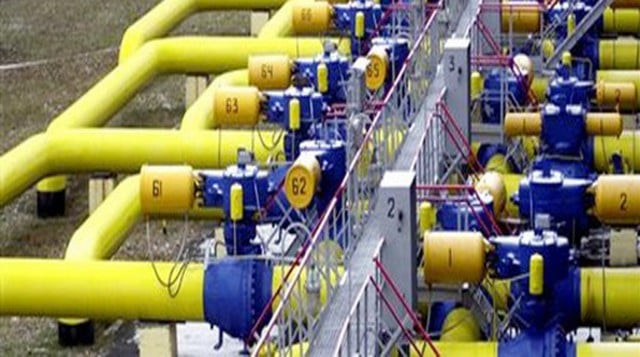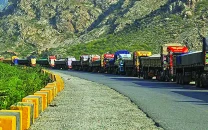TAPI pipeline: ADB offers to step in as transaction adviser
The offer is seen as a vote of confidence in the project’s viability.

Even as probable partners in the Turkmenistan-Afghanistan-Pakistan-India (TAPI) gas pipeline project continue to negotiate over key aspects of the deal, the Asian Development Bank (ADB) has offered to step in as a transaction adviser, helping generate funds to finance the project.
Sources told The Express Tribune that a formal offer was made by the ADB during a meeting of the technical working group of the TAPI project in Manila on May 30. The ADB is also working as the coordinator of the project.
“We are ready to play role of transaction adviser to generate funds for the multi-billion-dollar gas pipeline project,” sources quoted ADB representatives as saying.
The move is a vote of confidence and is likely to help the four countries in raising the $7.5 billion needed to complete the pipeline. The ADB’s involvement is helpful particularly given the political risks involved in the project due to the security situation in Afghanistan.
The role of transaction adviser on such a transnational project would typically be played by an investment bank, and it is entirely possible that European or American investment banks may become involved in the project’s financing at a later stage.
However, the involvement of multilateral institutions such as the ADB or the World Bank’s International Finance Corporation – give international institutional investors (from whom such financing would be raised) a greater degree of comfort, thus making it more likely that the money needed will materialise.
The movement towards raising the financing comes even as strong differences remain on various clauses of the deal between all four parties to the deal, including pricing, transit fees, maintenance schedules, and the size of the pipeline.
Among the key differences is the issue of sulphur content. Afghanistan and Pakistan want higher concentrations of sulphur in the gas that is normal in India.
“India will have to set up de-sulphurisation plants on gas pipeline to reduce the sulphur content,” said sources familiar with the matter.
Another issue was the maintenance schedule. Turkmenistan wants the pipeline closed during the winter months for maintenance, which is unacceptable to Islamabad since winter is the peak season for gas demand in Pakistan. The government of Pakistan “has demanded that the pipeline’s closure for maintenance take place over 15 days in the summer,” said sources.
It is unclear whether an agreement has been reached on this issue.
While transit fees were not discussed at the most recent meeting, the buyer countries – Afghanistan, Pakistan and India – had discussed three proposals for the transit fees to be paid to countries through which the pipeline passes at an earlier meeting on May 17 and 18 in Manila, though a decision was deferred until a meeting when all four countries met to discuss the project.
The first option called for a fixed transit fee for every country. The second option would determine the transit fee by the length of the pipeline laid in a given country while the third option would determine the fee by the volume of gas consumed in each country. At that same meeting, Pakistan’s proposal for joint negotiations with Turkmenistan on pricing was also agreed to. “Turkmenistan wants to hold negotiations on gas price at a bilateral level but Pakistan convinced the other countries that gas negotiations should be held at a multilateral level to ensure equal treatment for all buyer countries,” sources added.
Under the TAPI gas pipeline project, Pakistan is set to receive 1,350 million cubic feet per day (mmcfd) out of the total 3,200 mmcfd. An intergovernmental agreement and a gas pipeline framework agreement has already been signed. The four countries hope to sign the sales purchase agreement by July 31.
Published in The Express Tribune, June 13th, 2011.



















COMMENTS
Comments are moderated and generally will be posted if they are on-topic and not abusive.
For more information, please see our Comments FAQ